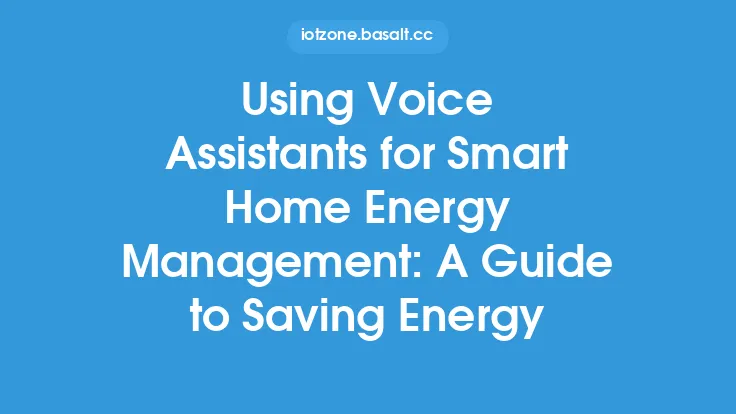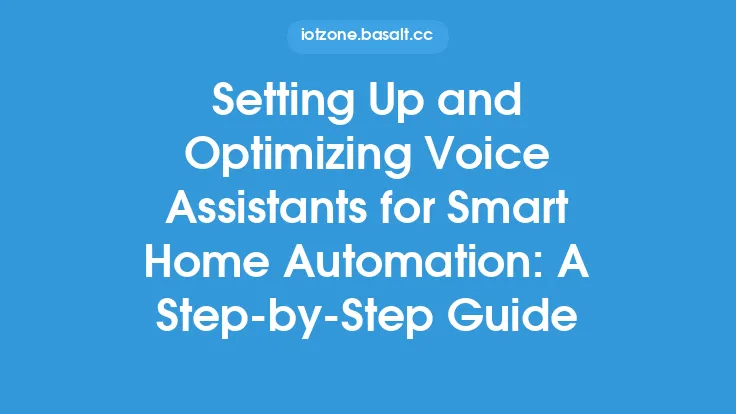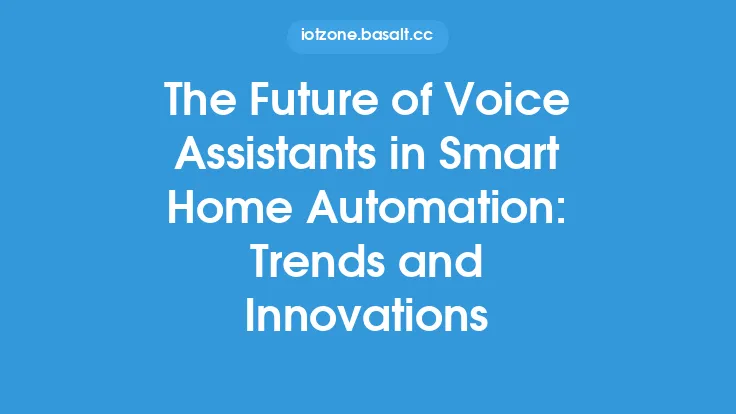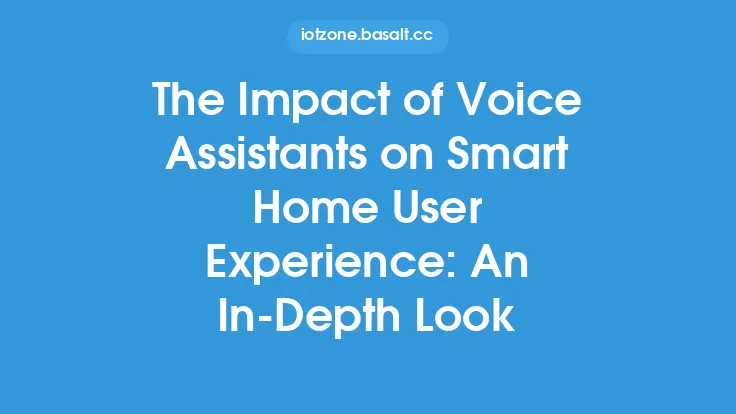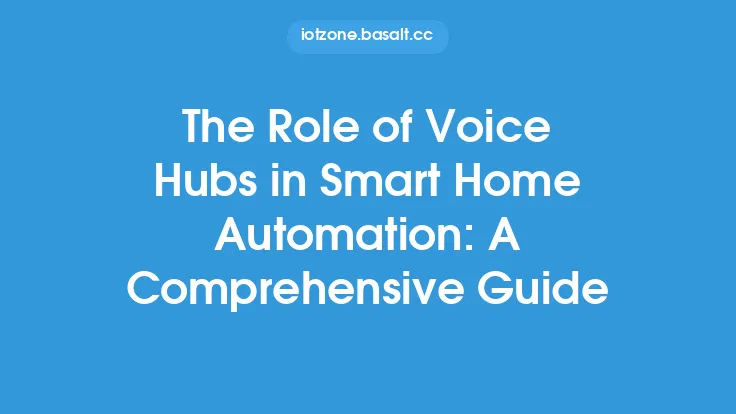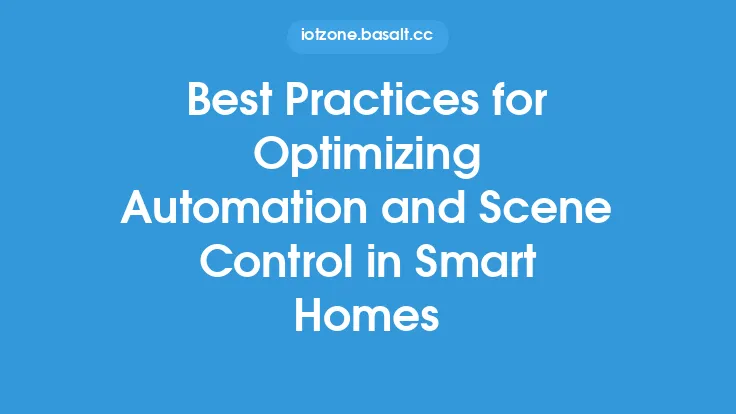The world of smart home automation has witnessed a significant transformation with the advent of voice assistants. These intelligent speakers have revolutionized the way we interact with our smart devices, making it easier to control and manage our homes with just our voices. With numerous voice assistants available in the market, it can be challenging to choose the right one for your smart home. In this article, we will delve into a comparative analysis of popular voice assistants, exploring their features, capabilities, and compatibility with various smart devices.
Introduction to Popular Voice Assistants
The most popular voice assistants for smart homes include Amazon Alexa, Google Assistant, Apple Siri, and Microsoft Cortana. Each of these voice assistants has its unique features, strengths, and weaknesses. Amazon Alexa, for instance, is known for its vast compatibility with smart devices, while Google Assistant excels in its ability to understand natural language and provide personalized responses. Apple Siri, on the other hand, is exclusive to Apple devices and offers a seamless integration with other Apple products. Microsoft Cortana, although not as widely used, offers a robust set of features and compatibility with Windows devices.
Architecture and Technical Specifications
From a technical standpoint, voice assistants rely on a complex architecture that involves natural language processing (NLP), machine learning algorithms, and cloud-based infrastructure. Amazon Alexa, for example, uses a combination of NLP and machine learning to understand voice commands and respond accordingly. Google Assistant, on the other hand, leverages Google's vast knowledge graph to provide more accurate and personalized responses. The technical specifications of these voice assistants also vary, with some requiring more powerful hardware and internet connectivity than others. For instance, Amazon Alexa requires a minimum internet speed of 0.5 Mbps, while Google Assistant requires a minimum speed of 1 Mbps.
Compatibility and Integration with Smart Devices
One of the most critical factors to consider when choosing a voice assistant is its compatibility with various smart devices. Amazon Alexa, for instance, is compatible with over 10,000 smart devices from more than 1,000 brands, including Philips Hue, Nest, and August. Google Assistant, on the other hand, is compatible with over 5,000 smart devices from more than 200 brands, including Samsung, LG, and Whirlpool. Apple Siri is exclusive to Apple devices and offers seamless integration with other Apple products, such as HomeKit-enabled devices. Microsoft Cortana, although not as widely compatible, offers integration with Windows devices and select smart devices from brands like Philips and Honeywell.
Voice Recognition and Natural Language Processing
Voice recognition and natural language processing (NLP) are critical components of voice assistants. Amazon Alexa uses a combination of NLP and machine learning to understand voice commands, while Google Assistant leverages Google's vast knowledge graph to provide more accurate and personalized responses. Apple Siri, on the other hand, uses a proprietary NLP algorithm to understand voice commands and respond accordingly. Microsoft Cortana uses a combination of NLP and machine learning to understand voice commands, although its accuracy and responsiveness can vary depending on the device and internet connectivity.
Security and Privacy Concerns
Security and privacy concerns are paramount when it comes to voice assistants. Amazon Alexa, for instance, uses encryption and secure servers to protect user data, while Google Assistant uses a combination of encryption and anonymization to protect user data. Apple Siri, on the other hand, uses end-to-end encryption to protect user data, while Microsoft Cortana uses a combination of encryption and secure servers to protect user data. However, there have been instances of voice assistants accidentally recording and storing user conversations, highlighting the need for robust security and privacy measures.
Multi-Room Audio and Entertainment
Multi-room audio and entertainment are increasingly popular features in smart homes. Amazon Alexa, for instance, offers multi-room audio capabilities, allowing users to play music and podcasts across multiple rooms. Google Assistant also offers multi-room audio capabilities, although its implementation can vary depending on the device and internet connectivity. Apple Siri, on the other hand, offers seamless integration with Apple devices, allowing users to play music and podcasts across multiple rooms. Microsoft Cortana, although not as widely used, offers multi-room audio capabilities, although its implementation can vary depending on the device and internet connectivity.
Smart Home Automation Scenarios
Voice assistants can be used to automate various smart home scenarios, such as turning on lights, adjusting thermostats, and locking doors. Amazon Alexa, for instance, offers a range of smart home automation scenarios, including routines and scenes, which allow users to automate multiple devices with a single voice command. Google Assistant also offers smart home automation scenarios, although its implementation can vary depending on the device and internet connectivity. Apple Siri, on the other hand, offers seamless integration with HomeKit-enabled devices, allowing users to automate various smart home scenarios. Microsoft Cortana, although not as widely used, offers smart home automation scenarios, although its implementation can vary depending on the device and internet connectivity.
Conclusion and Future Outlook
In conclusion, the world of voice assistants for smart homes is rapidly evolving, with each voice assistant offering its unique features, strengths, and weaknesses. When choosing a voice assistant, it's essential to consider factors such as compatibility, voice recognition, and security. As the smart home automation market continues to grow, we can expect to see more advanced features and capabilities from voice assistants, including improved voice recognition, more seamless integration with smart devices, and enhanced security and privacy measures. Ultimately, the future of voice assistants in smart home automation holds tremendous promise, and it will be exciting to see how these intelligent speakers continue to transform the way we interact with our smart devices and manage our homes.
